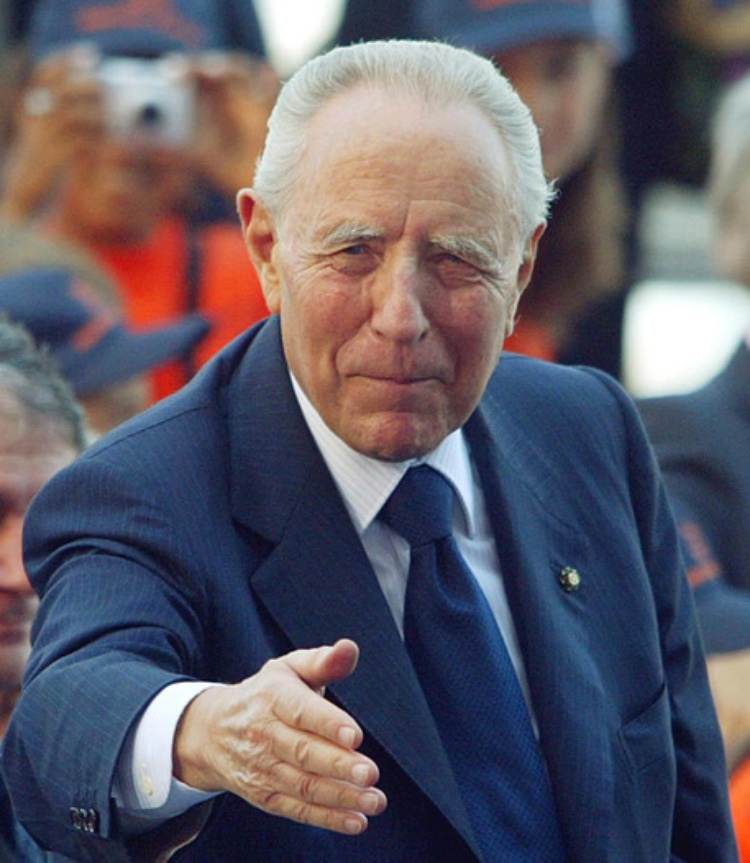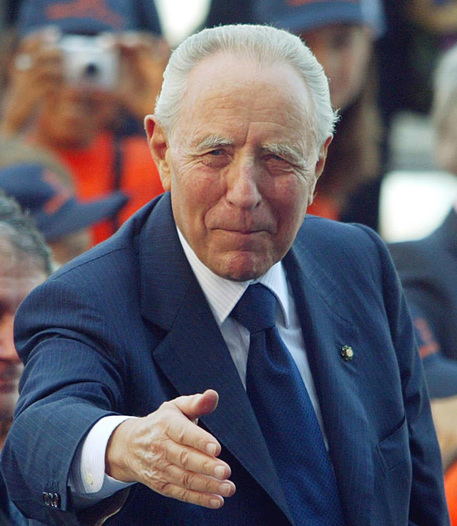Ciampi, who passed away on Friday aged 95, was a former central banker and later hailed as "everyone's president", when he served as a highly popular head of state from 1999 to 2006.
Ciampi played a key role in Italy's adoption of the euro, and the former president made it his mission to revive a patriotic spirit that had been significantly lacking in postwar Italy, outside far-right circles.
The statesman was born in the Tuscan port city of Livorno on December 9, 1920.
He graduated in Italian literature in 1941 from the prestigious Scuola Normale in Pisa, where he took a second degree in law after World War II.
During the war, he served in the Italian army - from 1941 until 1943 - before joining the partisans in the fight against Benito Mussolini.
The experience made him a staunch patriot and Europhile.
In 1946, Ciampi joined the central bank, where he spent 47 years of his working life.
He steadily climbed the ranks within the bank, until his appointment as governor in 1979.
Ciampi served in that position for 14 years until April 1993, when he was appointed prime minister in a government of transition until May 1994, when Italy was embroiled in a vast political corruption scandal, the so-called "Tangentopoli" (Bribesville).
A bi-partisan figure, Ciampi steered the country through a difficult institutional and economic transition, becoming the first non-lawmaker to head a government since the Italian Republic was founded.
He was not involved in the 1994 election that launched three-time conservative premier Silvio Berlusconi's career.
However, he served as finance minister in the center-left governments of Romano Prodi (April 1996-October 1998) and Massimo D'Alema (October 1998-May 1999), playing a key role in ensuring that Italy was among the first group of countries to join the single currency.
Surrounded by a team of economists, including the current European Central Bank President, Mario Draghi, Ciampi succeeded in cutting Italy's fiscal deficit from 6.7% in 1996 to 2.7% in 1997.
In May 1999, Parliament overwhelmingly elected Ciampi the tenth president of the Italian Republic for a seven-year mandate.
Ciampi's conduct during the war, along with his prized work as a civil servant and bi-partisan standing gave him a credibility and respect which he devoted to promoting a sense of patriotism and national unity, urging Italians to take pride in their shared history and symbols, notably the flag.
Ciampi avidly used the word "patria" (homeland) in his speeches and often ended them hailing the tri-color Italian flag and Italy: "Viva il tricolore, viva la nostra bandiera, viva l'Italia".
In 2001, Ciampi memorably paid tribute to an Italian division of soldiers that rebelled against the Germans and was massacred on the Greek island of Cephalonia during World War II, hailing them as founders of the Resistance.
Ciampi's patriotism also informed his neo-Keynesian economic views, in which he stressed the importance of all of the "social partners" working together in "concerted action" on business and incomes policies to spur progress for the whole country.
With ANSA












